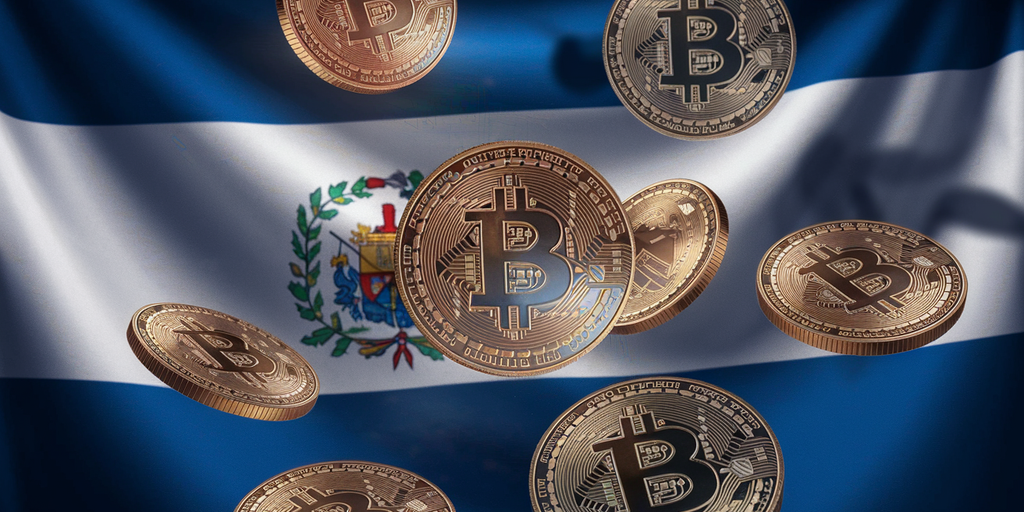IMF Imposes New Bitcoin Rules on El Salvador Through Its $1.4 Billion Loan
Introduction
In a significant move that is set to reshape the cryptocurrency landscape in El Salvador, the International Monetary Fund (IMF) has imposed new regulations concerning Bitcoin. As part of a substantial $1.4 billion loan agreement, the IMF is mandating the publication of all government Bitcoin wallet addresses along with audited financial statements for crypto-related entities. This development not only highlights the growing intersection of traditional finance and the burgeoning cryptocurrency sector but also raises questions about transparency and accountability in the realm of digital assets.
The Context of the IMF’s Loan to El Salvador
El Salvador made headlines in September 2021 when it became the first country in the world to adopt Bitcoin as legal tender. This bold move, championed by President Nayib Bukele, aimed to enhance financial inclusion and attract foreign investment. However, the implementation of Bitcoin as legal tender has faced considerable skepticism both domestically and internationally.
To support its ambitious Bitcoin agenda, El Salvador sought assistance from the IMF. The $1.4 billion loan agreement comes with specific stipulations aimed at ensuring fiscal responsibility and transparency within the country’s cryptocurrency initiatives.
New Regulations: A Closer Look
The newly imposed rules by the IMF introduce two critical components that are expected to influence how the government manages its Bitcoin holdings and related financial activities.
1. Publication of Government Bitcoin Wallet Addresses
One of the primary requirements is the public disclosure of all government Bitcoin wallet addresses. This measure is designed to enhance transparency regarding how the government interacts with Bitcoin, including:
- Tracking Transactions: By making wallet addresses public, both citizens and international observers can track transactions, making it easier to hold the government accountable for its Bitcoin activities.
- Investor Confidence: Transparency in financial transactions is crucial in building investor confidence, especially in a sector often plagued by uncertainty and volatility.
- Preventing Misuse: The publication of wallet addresses can help deter potential misuse of funds and corruption within the government.
2. Audited Financial Statements for Crypto-Related Entities
The second key component of the new regulations requires crypto-related entities in El Salvador to provide audited financial statements. This requirement aims to ensure that these entities operate within a framework of accountability and transparency.
- Enhancing Credibility: By mandating audits, the IMF hopes to enhance the credibility of crypto-related businesses, which can attract more serious investors and partnerships.
- Risk Management: Audited financial statements can help identify and mitigate risks associated with the volatile cryptocurrency market, safeguarding both businesses and consumers.
- Regulatory Compliance: This requirement aligns with global best practices for financial reporting, ensuring that companies comply with both local and international laws.
The Impact on El Salvador’s Cryptocurrency Ecosystem
The introduction of these new rules will undoubtedly have far-reaching implications for El Salvador’s burgeoning cryptocurrency ecosystem.
Increased Transparency and Trust
The push for transparency through the publication of wallet addresses and audited financial statements is likely to foster greater trust among citizens and potential investors. In a country where skepticism toward government initiatives is prevalent, these measures can help to build a more robust and trustworthy environment for cryptocurrency activities.
Challenges Ahead
While the new rules aim to enhance transparency, they may also present challenges for the government and crypto-related businesses.
- Operational Costs: Complying with the auditing requirements may impose significant operational costs on smaller crypto businesses, which could stifle innovation and growth.
- Public Resistance: There may be pushback from segments of the population that are wary of increased government oversight in the cryptocurrency space.
- Regulatory Uncertainty: As the cryptocurrency landscape continues to evolve, the implementation of new regulations may lead to confusion and uncertainty within the industry.
The Global Context
The IMF’s intervention in El Salvador is not happening in isolation. Globally, regulatory bodies are increasingly focusing on cryptocurrency markets as they recognize the potential risks and benefits associated with digital assets. Countries around the world are grappling with how to balance innovation in the cryptocurrency space with the necessity of consumer protection and financial stability.
Lessons for Other Countries
El Salvador’s experience serves as a potential case study for other nations considering the integration of cryptocurrency into their economies. The IMF’s stipulations could act as a blueprint for establishing effective regulatory frameworks that promote transparency while fostering innovation. Countries observing El Salvador’s journey may learn valuable lessons on the importance of:
- Regulatory Clarity: Clear guidelines can help businesses operate without fear of sudden regulatory changes.
- Public Engagement: Involving citizens in discussions about cryptocurrency can lead to broader acceptance and understanding.
- Collaboration with Financial Institutions: Partnerships with established financial institutions can enhance the legitimacy of cryptocurrency initiatives.
Conclusion
The IMF’s new rules requiring the publication of government Bitcoin wallet addresses and audited financial statements for crypto-related entities mark a significant turning point for El Salvador and its relationship with cryptocurrency. As the country navigates the complexities of integrating Bitcoin into its financial system, these regulations offer a framework for greater transparency and accountability.
The journey ahead will be challenging, but the potential benefits of fostering a responsible and innovative cryptocurrency ecosystem could pave the way for El Salvador to become a leading player in the global digital economy. As other nations watch closely, El Salvador’s actions may set important precedents that shape the future of cryptocurrency regulation worldwide.






